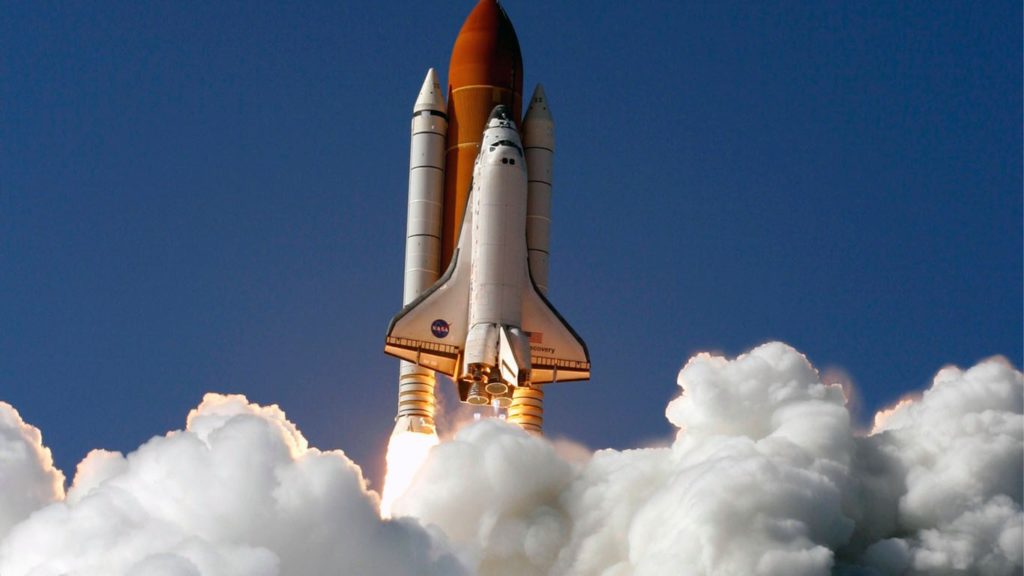Richard Shelby encourages support, passage of $60 billion appropriations bill

Alabama U.S. Senator Richard Shelby, chairman of the Senate Appropriations Subcommittee on Commerce, Justice, Science and Related Agencies (CJS), on Wednesday announced the filing of a Fiscal Year 2018 appropriations bill. The bill would provide crucial funding to the U.S. Departments of Commerce and Justice, the National Aeronautics and Space Administration (NASA), and the National Science Foundation. “This is a strong bill that provides significant support for my priorities on the Commerce, Justice, and Science subcommittee, such as law enforcement, national security, economic development, scientific research, and space exploration,” said Shelby. “Furthermore, it will rebuild and strengthen our military with the biggest increase in defense funding in 15 years, while also creating opportunities to renew America’s aging infrastructure throughout the nation. I urge my colleagues to join me in supporting this bipartisan bill.” The bill would provide: $30 million in grants to support troubled coal mining communities across the nation $20.7 billion for NASA space, educational, and technology programs $2.9 billion for DOJ State and Local Law Enforcement Activities, including the Office on Violence Against Women, juvenile justice programs, and community crime prevention $32 million for Community Oriented Policing Services’ (COPS) to combat the opioid and heroin crisis. $177.5 million for initiatives to address rape kit and other DNA evidence backlogs Highlights from the bill, and full details of funding can be found below: Science National Aeronautics and Space Administration (NASA) – $20.7 billion for NASA, $1.1 billion above the FY2017 enacted level and $1.6 billion above the budget request, to support the human and robotic exploration of space, fund science missions that enhance the understanding of the Earth, the solar system, and the universe, and support fundamental aeronautics research. This includes: $2.15 billion for the Space Launch System (SLS), which is $212 million above the request. $1.3 billion for the Orion crewed spacecraft, $164 million above the request, to continue development of NASA’s next deep-space crewed capsule. $760 million for Space Technology, $74 million above the FY2017 enacted level to advance projects in early stages of development that are expected to demonstrate capabilities needed for future space exploration. $100 million is provided for Education programs that were proposed to be eliminated in the budget request. NASA EPSCoR is funded at $18 million, Space Grant is funded at $40 million, the Minority University Research and Education Project is funded at $32 million, and STEM Education and Accountability Projects are funded at $10 million. Department of Commerce The bill funds the U.S. Department of Commerce at $11.1 billion, $1.9 billion more than FY2017, to focus on core economic development activities, protecting intellectual property rights, strengthening trade enforcement, advancing cybersecurity research, and improving severe weather forecasting. Economic Development Administration (EDA) – $301.5 million for the EDA, $25.5 million more than FY2017. Increased funding expands the Public Works program to support brick-and-mortar projects in communities across the country and broadband infrastructure and access to unserved areas of the country. The bill also provides $30 million in grants to assist troubled coal mining communities. National Institute of Standards and Technology (NIST) – $1.2 billion for NIST, $247 million above the FY2017 enacted level. This amount includes a $10 million increase over the FY2017 level for the NIST Manufacturing Extension Partnership. Targeted funding will continue to support our nation’s cybersecurity posture through cutting-edge research, expanded advanced manufacturing opportunities, and the promotion of high quality standards to maintain fairness in the marketplace. National Oceanic and Atmospheric Administration (NOAA) – $5.9 billion, $234 million above the FY2017 enacted level. The bill provides full funding for NOAA’s flagship weather satellites, which are critical for accurate weather warnings to protect lives and property. Increased funding is provided for the National Weather Service to address failing infrastructure at its Weather Forecast Offices across the country. In addition, the bill includes increased funding for our nation’s fisheries. This includes continued support for more accurate and agency-independent data and language allowing NOAA to experiment with alternative management regimes. Provisions in the bill will help expand opportunities for American commercial and recreational fishermen. Department of Justice The bill funds the Department of Justice (DOJ) at $30.3 billion, $1.3 billion above the FY2017 enacted level. The constantly-changing landscape of criminal activity at home and abroad tests the DOJ’s ability to deal with emerging threats. The bill ensures that federal law enforcement agencies work together to focus limited resources in a manner that safeguards taxpayer dollars while preserving public safety. Executive Office for Immigration Review (EOIR) – The bill provides $504.5 million for EOIR, $64.5 million above the FY2017 enacted level, which includes funding for at least 100 new Immigration Judge (IJ) Teams to help reduce the extensive and growing backlog of pending immigration cases. Federal Bureau of Investigation (FBI), Salaries and Expenses – $9.03 billion, a $263 million increase above the FY2017 enacted level. Within funding provided, the FBI is expected to enhance its investigative and intelligence efforts related to terrorism, national security, human trafficking, and cyber threats, while also enforcing U.S. criminal laws. The bill directs the FBI to ensure full funding for the operations of the National Instant Criminal Background Check System (NICS), and to review protocols associated with communication and information sharing between the Public Access Line and FBI field offices. Law Enforcement Grant Programs – $2.9 billion for DOJ State and Local Law Enforcement Activities, including the Office on Violence Against Women, juvenile justice programs, and community crime prevention grant programs. The bill contains $330 million to fund the Comprehensive Addiction and Recovery Act of 2016 (CARA) grant program, a $227 million increase over FY2017, and $32 million for Community Oriented Policing Services’ (COPS) anti-heroin task forces grants. Overall, a $299.5 million increase in grant funding is provided above the FY2017 level to combat the opioid and heroin crisis. The bill also contains $415.5 million for Byrne Justice Assistance Grants (JAG) and $177.5 million for initiatives to address rape kit and other DNA evidence backlogs. DOJ is directed to require all applicants for Byrne-JAG, COPS, and State Criminal Alien Assistance Program (SCAAP) grants to certify that they are in compliance with all
Richard Shelby delivers opening remarks at FY18 NASA budget hearing

On Thursday, the U.S. Senate Appropriations Subcommittee on Commerce, Justice, Science and Related Agencies (CJS) held a hearing to review the FY2018 $19.1 billion budget request for the National Aeronautics and Space Administration (NASA) — a $561 million decrease from current FY2017 funding. Alabama U.S. Senator Richard Shelby, Chairman of the committee, delivered opening remarks in the subcommittee hearing. “This budget request attempts to navigate a challenging fiscal environment, but would disrupt ongoing missions and delay future exploration for years to come,” Shelby said. Shelby continued, “This subcommittee has strived to provide balance funding to the overall NASA portfolio, while also ensuring that ongoing activities are appropriately funded to accomplish NASA’s missions. I look forward to working with you to achieve the appropriate balance for NASA’s missions.” Shelby’s full remarks, as prepared, are below: I am pleased to welcome Acting Administrator Robert Lightfoot to the Commerce, Justice, and Science Appropriations Subcommittee hearing to examine NASA’s Fiscal Year 2018 budget request. Mr. Lightfoot and I worked well together during his tenure as the Director of NASA’s Marshall Space Flight Center in Huntsville, Alabama. Mr. Lightfoot, thank you for serving as NASA’s leader during this time of change and I appreciate you joining us today. The Administration has proposed a fiscal year 2018 budget of $19.1 billion dollars for NASA, which is a reduction of 2.9 percent from the current year level. While this overall cut is less than many other agencies experienced in the President’s budget request, it still reflects a significant reduction of $561 million. This budget request attempts to navigate a challenging fiscal environment, but would disrupt ongoing missions and delay future exploration for years to come. There are proposals to cut science missions and to eliminate the entire education directorate using the rationale that NASA could do without these programs under a reduced budget. Other research programs are left with insufficient financial resources, which will make it impossible for NASA to meet its own management plans and launch schedules. For human exploration, the current administration picks up where the previous administration left off, by projecting a lofty vision for space while providing a budget that keeps that vision from leaving Earth. The Space Launch System and the Orion crew capsule are designed to break our human space program free of its decade’s long tether to low Earth orbit, eventually sending our astronauts to Mars. In addition, SLS will provide NASA with a versatile platform to deliver planetary robotic science and space-based astronomy missions. SLS is the vehicle that will make possible many of NASA’s goals to push the boundaries of exploration. I look forward to an initial launch of SLS and will work to see that a crewed-launch will follow soon thereafter. I believe we must have an accurate budget to reflect these launch decisions and to meet our nation’s exploration goals. If the other pieces necessary for exploration are not ready, we will lose time and waste funds in the near-term that could be used for other important activities down the road. NASA, I believe, must ensure that the rigor with which it reviews its own missions is applied to all of its activities and avoid pressure to send astronauts to space at any cost. There is a growing sentiment that NASA should change the way it does business; that it should be a buyer of commercial transportation services. Were it not for billions in development funds from NASA acting as venture capital, there would be no companies attempting to one day take crews to the space station. Even with this investment, the companies NASA will use for commercial crew services are behind in schedule, the program has increased in cost, and independent observers cite the inability of our partners to meet contracted safety standards. While risk is inherent in anything NASA chooses to undertake, there is no replacement for proper analysis and reasonable precaution when lives and the resources of the nation are at stake. When it comes to agency operations, I am encouraged to see the investments in information technology and cybersecurity in this proposed budget. NASA is very popular with the public and also has a significant amount of data for scientists to use in understanding the universe around us. I believe it is incumbent that NASA be able to share its findings, but the agency must also maintain a secure cyber environment for operations. NASA’s innovative ideas often involve significant risk and also require significant investment. This subcommittee has strived to provide balance funding to the overall NASA portfolio, while also ensuring that ongoing activities are appropriately funded to accomplish NASA’s missions. As with any administration, the proposed budget represents a snapshot in time based on decisions made with the most relevant information available. As the subcommittee moves ahead to produce our annual spending bill, I look forward to working with you to achieve the appropriate balance for NASA’s missions.


